Siva Jayaraman
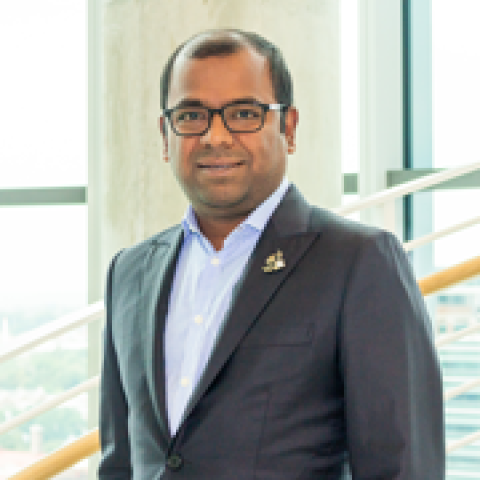

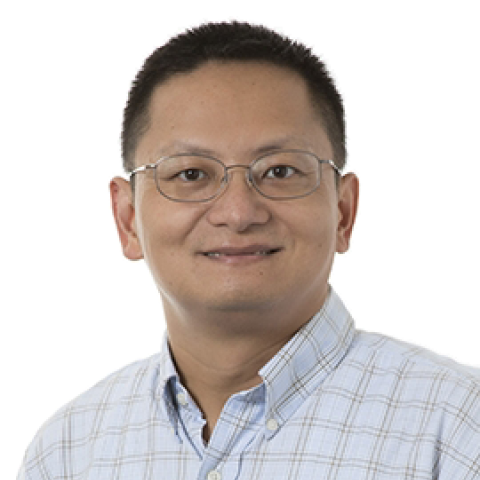
Xiaoming Huo is an A. Russell Chandler III Professor in the H. Milton Stewart School of Industrial and Systems Engineering at Georgia Tech. Dr. Huo's research interests include statistical theory, statistical computing, and issues related to data analytics. He has made numerous contributions on topics such as sparse representation, wavelets, and statistical problems in detectability. His papers appeared in top journals, and some of them are highly cited. He is a senior member of IEEE since May 2004.
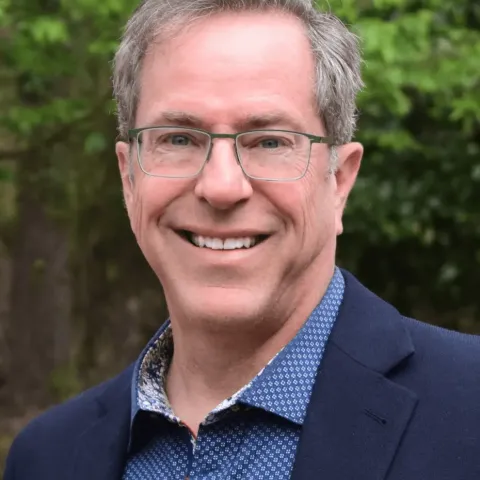
Larry P. Heck is a Professor with a joint appointment in the Schools of Electrical and Computer Engineering and Interactive Computing at the Georgia Institute of Technology. He holds the Rhesa S. Farmer Distinguished Chair of Advanced Computing Concepts and is a Georgia Research Alliance Eminent Scholar. His received the BSEE from Texas Tech University (1986), and MSEE and PhD EE from the Georgia Institute of Technology (1989,1991). He is a Fellow of the IEEE, inducted into the Academy of Distinguished Engineering Alumni at Georgia Tech and received the Distinguished Engineer Award from the Texas Tech University. He was a Senior Research Engineer with SRI (1992-98), VP of R&D at Nuance (1998-2005), VP of Search and Advertising Sciences at Yahoo! (2005-2009), Chief Scientist of the Microsoft Speech products and Distinguished Engineer in Microsoft Research (2009-2014), Principal Scientist with Google Research (2014-2017), CEO of Viv Labs and SVP at Samsung (2017-2021).
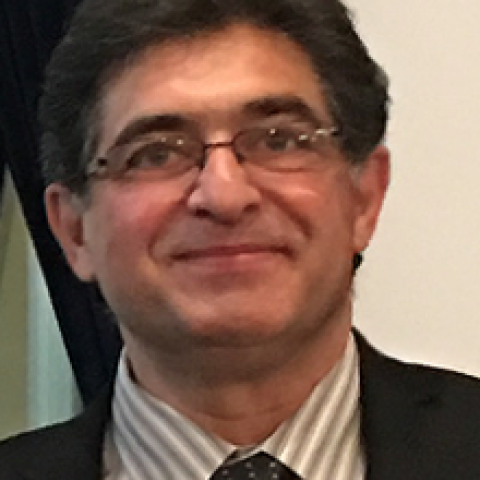
Hamid Garmestani is a professor in the School of Materials Science and Engineering at the Georgia Institute of Technology. He received his education from Cornell University (Ph.D. 1989 in Theoretical and Applied Mechanics) and the University of Florida (B.S. 1982 in Mechanical Engineering, M.S. 1984 in Materials Science and Engineering). After serving a year as a post-doctoral fellow at Yale University, he joined the Mechanical Engineering Department at Florida State University (FAMU-FSU College of Engineering) in 1990.
Primary research and teaching interests include microstructure/property relationship in textured polycrystalline materials, composites, superplastic, magnetic and thin film layered structures. He uses phenomenological and statistical mechanics models in a computational framework to investigate microstructure and texture (micro-texture) evolution during processing and predict effective properties (mechanical, transport and magnetic). His present research interests are processing of fuel cell materials and modeling of their transport and mechanical properties.
Garmestani has been the recipient of a research award (FAR) through NASA in 1997. He received the Superstar in Research award in 1999 by FSU-CRC. He has also been the recipient of the Engineering Research Award at the FAMU-FSU College of Engineering, Spring 2000. He is a member of the editorial board of the International Journal of Plasticity and board of reviewers for journal of Metal Transaction. He is presently funded through NSF (MRD), NASA, Air Force and the Army.
computational mechanics; micro and nanomechanics; Electrical charge storage and transport; Fuel Cells
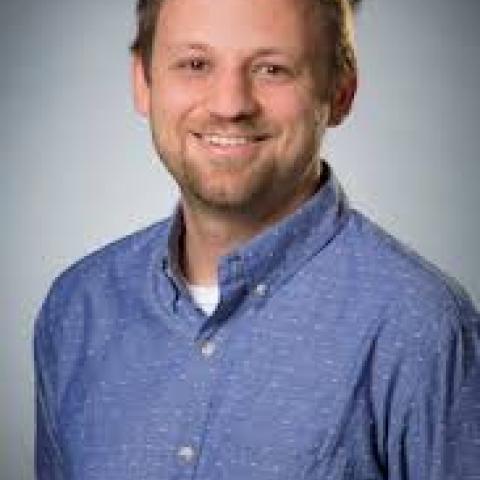
Alex Endert is an Associate Professor in the School of Interactive Computing at Georgia Tech. He directs the Visual Analytics Lab, where he works with his students to design and study how interactive visual tools help people make sense of data and AI. His lab often tests these advances in domains, including intelligence analysis, cyber security, decision-making, manufacturing safety, and others. His lab receives generous support from sponsors, including NSF, DOD, DHS, DARPA, DOE, and industry. In 2018, he received a CAREER award from the National Science Foundation for his work on visual analytics by demonstration. He received his Ph.D. in Computer Science from Virginia Tech in 2012. In 2013, his work on Semantic Interaction was awarded the IEEE VGTC VPG Pioneers Group Doctoral Dissertation Award, and the Virginia Tech Computer Science Best Dissertation Award.
Visual Analytics
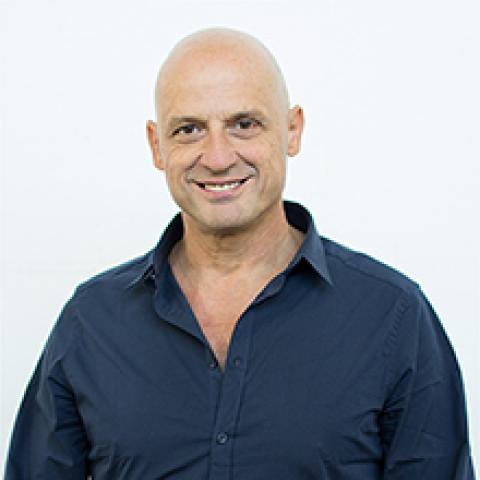
Athanassios (Thanos) Economou is Professor at the School of Architecture in the College of Design, and Adjunct Professor at the School of Interactive Computing at Georgia Institute of Technology. Dr. Economou’s teaching and research are in the areas of shape grammars, computational design, computer-aided design and design theory, with over sixty published papers in these areas. He is the Director of the Shape Computation Lab, a research group that explores how the visual nature of shape can be formally implemented with new technologies to enable new paradigms in visual computation, design automation, creative design and digital heritage. Recent projects include the Shape Machine, a new computational technology that allows shape matching in CAD systems, and Courtsweb, the most significant visual database on Federal Courthouses, sponsored by GSA and US.Courts. Design projects from his studios at Georgia Tech have received prestigious awards in international and national architectural competitions. He has been invited to give talks, seminars, and workshops at several universities including MIT, Harvard, TU Vienna, U. Michigan, KAIST, Chiao Tung U Taiwan, Emory, Seoul National U, Cambridge U, Tsinghua U, UCLA, NTUA, U.Thessaly, U.Aegean, among others. Dr. Economou holds a Diploma in Architecture from NTUA, Athens, Greece, an M.Arch from USC, and a PhD in Architecture from UCLA.

Aaron Drysdale, a Master of Computer Science graduate from Georgia Tech, is the Chief Technologist at the Cloud Hub. He manages the proposal process for research grants, organizes industry training sessions, and provides direct technical support to research teams utilizing cloud resources. Aaron's role also involves collaborating with Microsoft’s technical teams to resolve complex issues, ensuring seamless and efficient research progress. His expertise and proactive approach are vital to the success of the Cloud Hub's mission to advance innovative research.
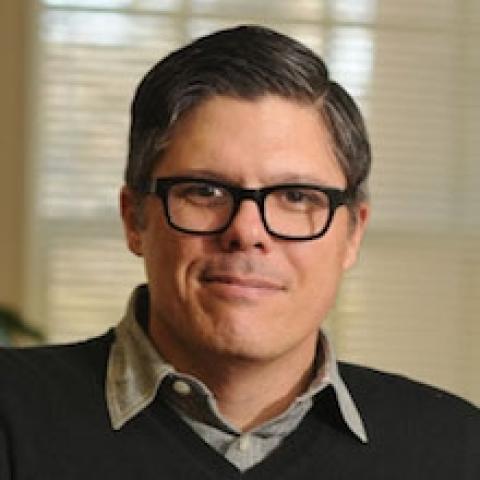
Carl DiSalvo is an Associate Professor in the Digital Media Program in the School of Literature, Media, and Communication at the Georgia Institute of Technology. At Georgia Tech he directs the Public Design Workshop: a design research studio that explores socially engaged design and civic media.
DiSalvo is also co-director of the Digital Interdisciplinary Liberal Arts Center and its Digital Civics initiative, funded by the Mellon Foundation, and he leads the Serve-Learn-Sustain Fellows program, which brings together faculty, staff, students, and community partners to explore pressing social research themes (the 2016-2017 themes are Smart Cities and Food, Energy, Water, Systems). He has a courtesy appointment in the School of Interactive Computing and is an affiliate of the GVU Center and the Center for Urban Innovation. DiSalvo also coordinates the Digital Media track of the interdisciplinary M.S. in Human-Computer Interaction.
DiSalvo’s scholarship draws together theories and methods from design research and design studies, the social sciences, and the humanities, to analyze the social and political qualities of design, and to prototype experimental systems and services. Current research domains include civics, smart cities, the Internet of Things, food systems, and environmental monitoring. Across these domains, DiSalvo is interested in how practices of participatory and public design work to articulate issues and provide resources for new forms of collective action.
Areas of Expertise:
Design; Sustainability and Design; Design and the Humanities; New Media Art/Art and Technology; Public Enagagement with Technology; Participatory Media/Participatory Culture; Design and Culture/Society
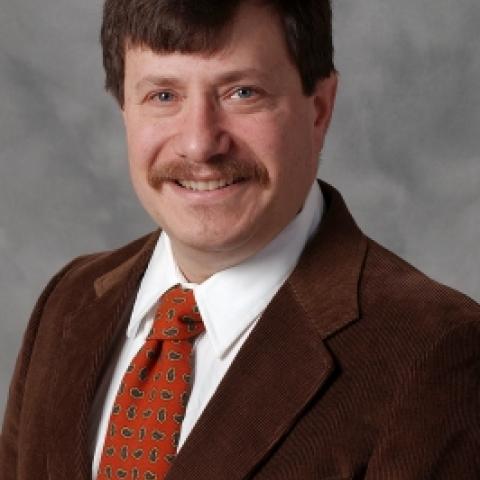
Professor Citrin earned a B.A. from Williams College (1985) and a M.S. (1987) and a Ph.D. (1991) from the University of Illinois, all in physics, where his dissertation was on the optical properties of semiconductor quantum wires. Subsequently, he was a post-doctoral research fellow at the Max Planck Institute for Solid State Research, Stuttgart, Germany (1992-1993) and Center Fellow at the Center for Ultrafast Optical Science at the University of Michigan (1993-1995). Dr. Citrin was an assistant professor of physics and materials science at Washington State University (1995 to 2001).
Professor Citrin joined the faculty at Georgia Tech in 2001 where his work focuses on terahertz technology and nanotechnology. He is a recipient of a Presidential Early Career Award for Scientists and Engineers and of a Friedrich Bessel Award from the Alexander Von Humboldt Stiftung. In addition, he is Project Coordinator on Nonlinear Optics and Dynamics at Georgia Tech-CNRS UMI 2958 located at Georgia Tech-Lorraine. Professor Citrin’s research in terahertz imaging is featured in the Georgia Tech press release, ”Imaging Technique Unlocks the Secrets of 17th Century Artists"; a list of some media placements from the press release may be found at http://photonics.georgiatech-metz.fr/node/33.
Research interests:
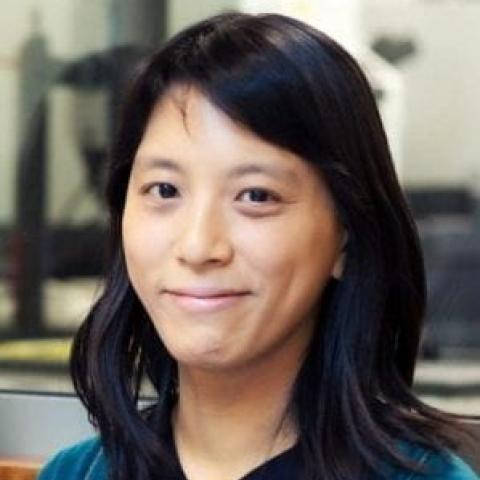
Hannah Choi is an Assistant Professor in the School of Mathematics at Georgia Tech. Her research focuses on mathematical approaches to neuroscience, with primary interests in linking structures, dynamics, and computation in data-driven brain networks at multiple scales. Before coming to Georgia Tech, she was a postdoctoral fellow at the University of Washington and also a visiting scientist at the Allen Institute for Brain Science, and spent one semester at the Simons Institute for the Theory of Computing at the University of California, Berkeley as a Patrick J McGovern Research Fellow. She received her Ph.D. in Applied Mathematics from Northwestern University and her BA in Applied Mathematics from the University of California, Berkeley.